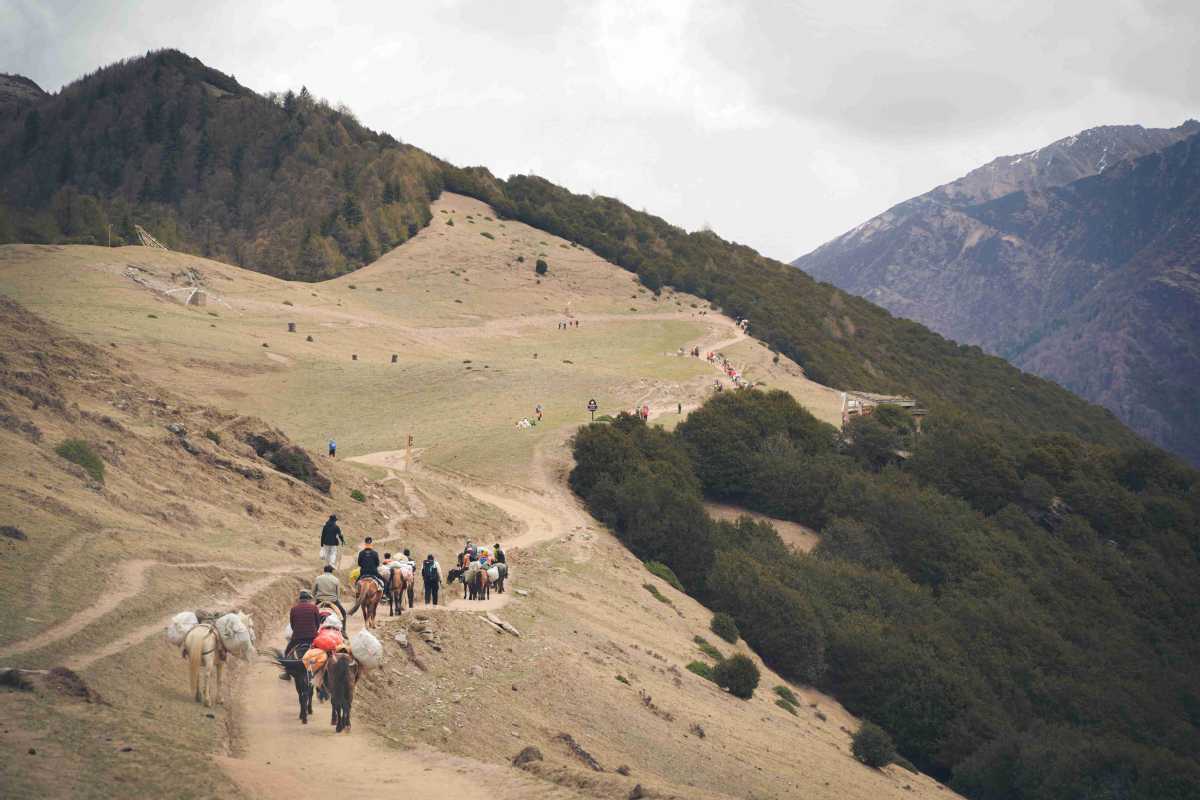Peak performers set their sights high


More participants
In China, exploring snow-clad mountains initially attracted only small numbers of people, but the pursuit has become increasingly popular over the years. In 2018, a report by the travel website Ctrip said mountain hikes had become an important leisure activity for young people.
During the May Day holiday this year, video footage of long lines of people exploring the Khumbu glacier on Qomolangma went viral on Chinese social media platforms.
The Nepal Department of Tourism has issued 463 licenses for climbers hoping to scale Qomolangma this year. Wenhui Daily reported that 99 licenses were issued to Chinese climbers — more than those from the United States. For years, most of the licenses were issued to US climbers, ahead of those from the United Kingdom.
Jiefang Daily reported that most aspiring climbers typically spend $46,000 to $48,000 on climbing permits, transportation, equipment and supplies, and mountain guides.
In China, more climbers such as Xu Zhuoyuan are flocking to snowy mountains in Sichuan, Yunnan and other provinces.
Data from sichuantour.cn show that by 5 pm on May 3, Siguniang Mountain had received 82,946 tourists during the May Day holiday, a year-on-year rise of over 287 percent — setting a record for the scenic area.
In Yunnan, the management committee of Yulong Mountain said the scenic spot attracted 179,700 tourists during the Spring Festival holiday, a year-on-year rise of just over 873 percent, and up by slightly more than 25 percent on the figure for 2019.
At the start of April, Liu Xiaoyu, a student at Wuhan University of Technology, decided to climb Siguniang Mountain in Sichuan with his friend Wang Kaiyao. Over a two-week period, the pair drew up travel plans, asked for leave, bought train tickets and equipment, and employed a mountain guide.
They started their climb at 10 am on April 20, chatting happily with other mountaineers.
Liu said: "We discovered that the girl who shared a car with us the previous day is my schoolmate. What a coincidence!"
At night, the pair rested in a tent, with snow on the ground outside, but Liu could not sleep. At 3 am, they started climbing again, but this time the task seemed much harder.
"I was not in a good state — dizzy, out of breath, and cold, but I managed to pull myself together, and my heart rate gradually slowed," Liu said.
Wang said: "I have no idea how many steep hills we have climbed, but exhaustion forced me to rest every 10 steps, which then became every five or even three steps. I had no intention of quitting, but I was worn out. I could see the dim glow of other climbers' helmet lights in the darkness, and Liu kept urging me on."
The pair reached the summit at 6:50 am on April 21, but they could not appreciate the view due to dense fog.
"The ancient Greek philosopher Epicurus believed that happiness frees the body from pain and the soul from interference. I think mountaineering is a process of seeing the world and finding oneself. What you see on camera is never as good as what you witness yourself," Liu said.
He added that the sight of dawn breaking on the mountain amid the clouds was stunning.
On March 27, Dada, 26, climbed Yulong Mountain with one of her friends.
"As a Cantonese, I had never seen snow before, so I was enthusiastic about this trip," Dada said, adding that she recently resigned from her e-commerce job without another position to go to, because she felt depressed and under a lot of pressure. She just wanted to relax and see the snow during the trip to Yunnan.
The pair, who started out at 7 am, rented coats, as the temperature was extremely low. "We were a little awed by the mountain's height, but I overcame my fear to take in the beautiful scenery from the funicular railway," Dada said.
When they left the funicular, Dada was thrilled, as it started to snow. She grabbed a handful of snow and took photographs.
"As I was climbing the mountain, I experienced mild altitude sickness and hypoxia (a condition in which the tissues are starved of oxygen), which made me feel as though all my pressure had gone," she added.
During the climb, she was impressed by an elderly man who told her his wife was resting at a lower altitude because of exhaustion, leaving him to reach the summit alone.
"When I descended the mountain, the wind was strong, snow blew in my face, and visibility was less than 50 meters. All I could see was whiteness," Dada said.


















